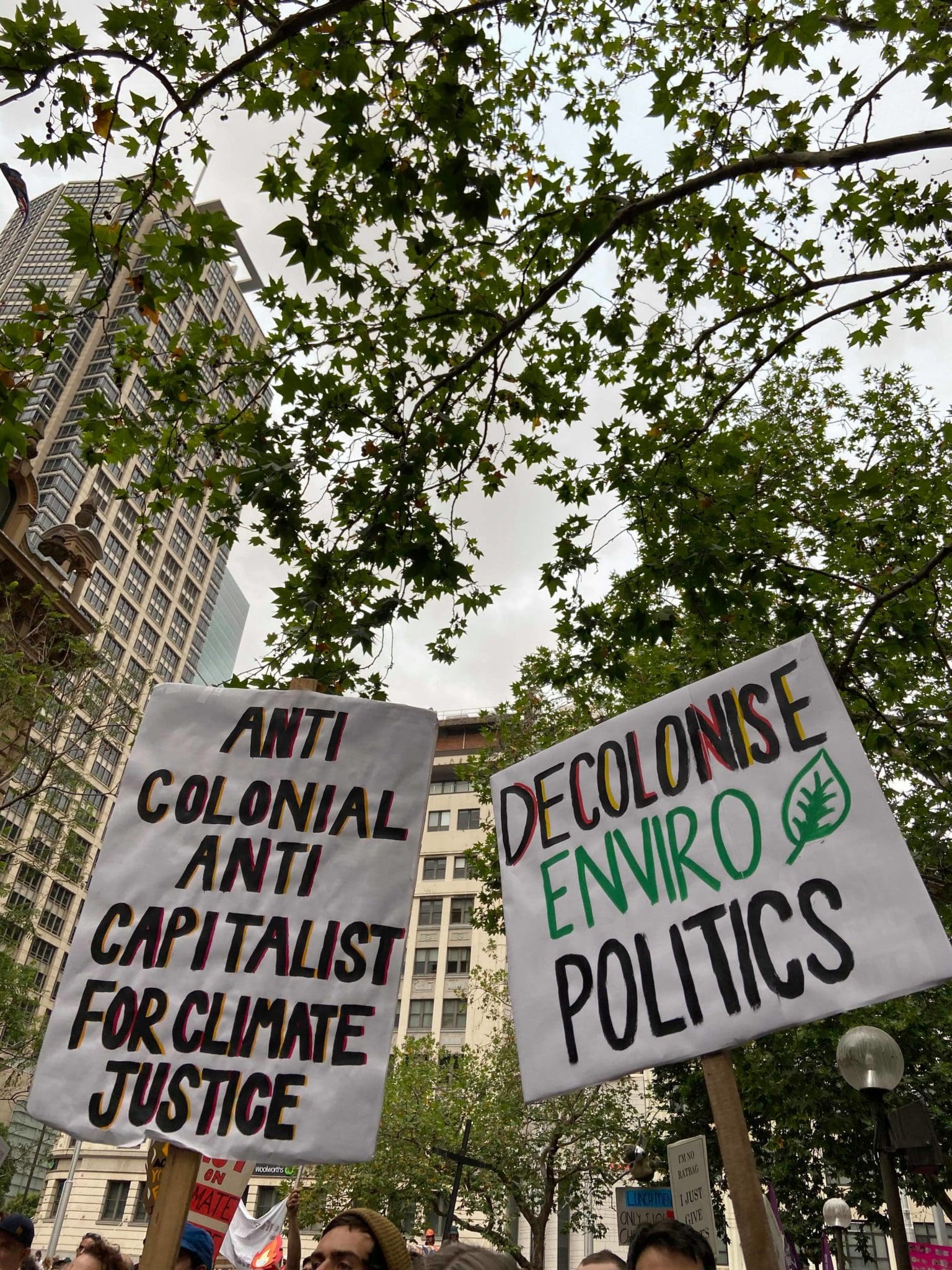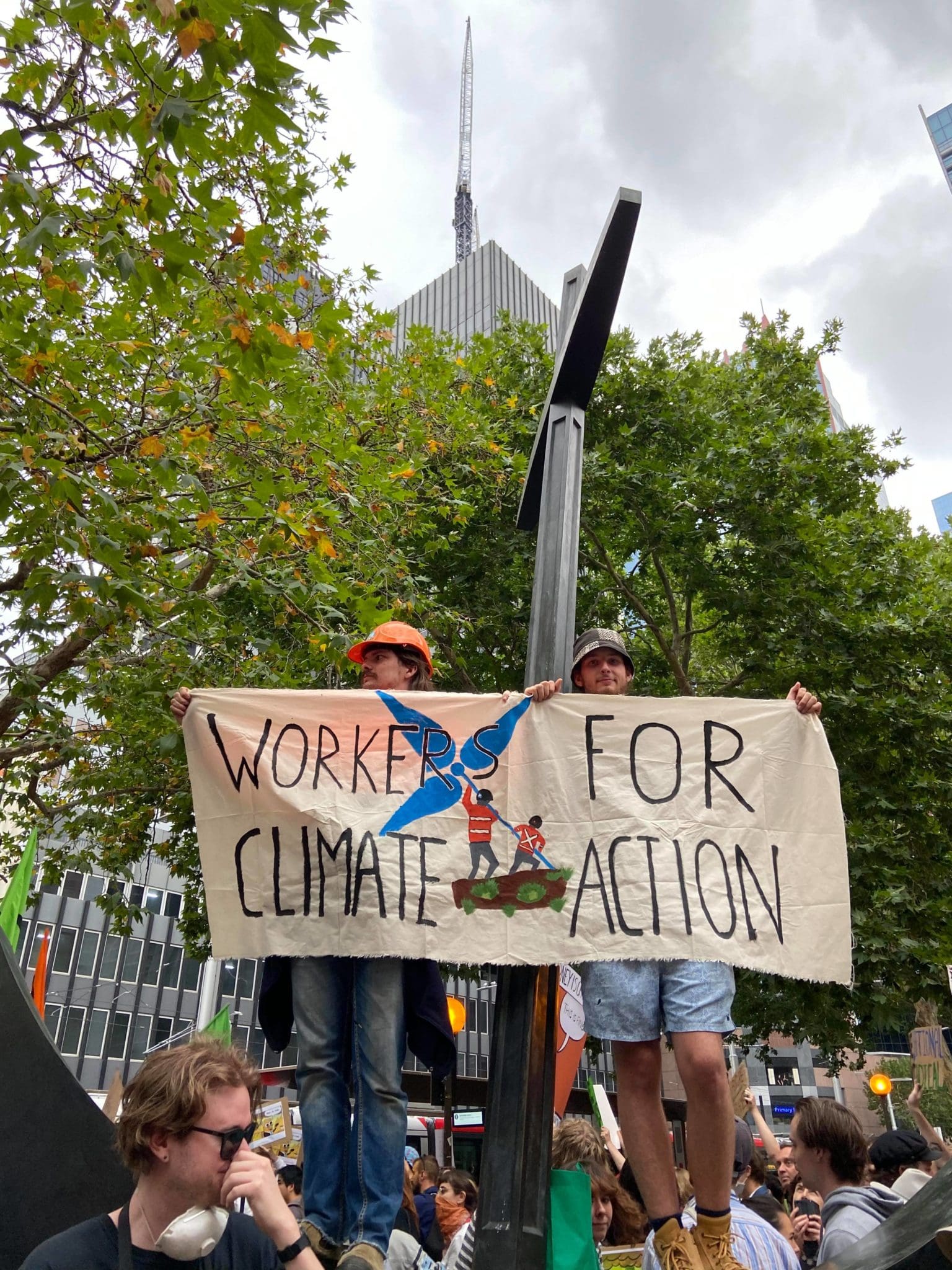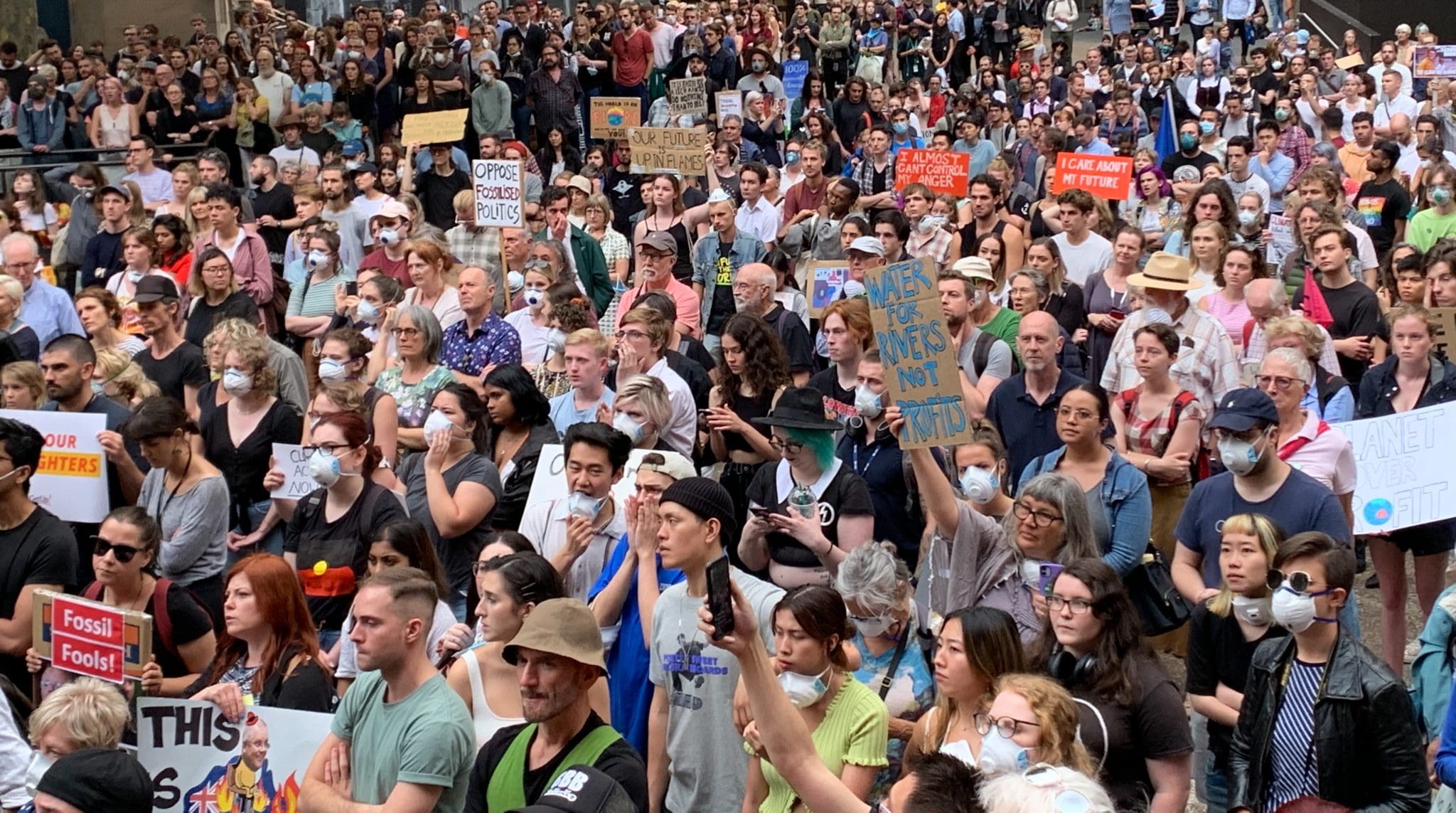More than 20,000 workers, students, activists and First Nations people gathered at Town Hall this evening to protest government inaction on climate change, following a week of the “worst ever” recorded air pollution in Sydney.
Protestors called attention to the devastating bushfires raging across NSW, demanding immediate climate action, greater funding of fire services and adequate measures to deal with increasing air pollution.

Speakers called for improved industrial protections for those working through the smog, reminding protestors of the right to stop work where it was dangerous due to hazardous air quality. Employers were called on to cease operations for workers in areas where air pollution was deemed toxic.
A Maritime Union of Australia speaker told the crowd that just transitioning away from fossil fuels is inadequate unless there is an active “fight for a just transition for workers.” About 100 MUA members stopped work at Sydney docks this week as a result of dangerous air quality. Protestors followed this call with chants of “One struggle, one fight. Climate justice, workers’ rights.”
Organisers also called attention to the need for a joint struggle for climate action, workers’ rights and anti-colonial justice.
Gumbaynggirr activist, Gavin Walker, highlighted the extinguishing of Wangan and Jagalingou claims to Native Title by the Queensland Labor Palaszczuk government to make way for the Adani coal mine.
Walker argued that “we cannot rely on Scott Morrison in the same way we cannot rely on Anthony Albanese.”
Prime Minister Scott Morrison has faced mounting criticism for his refusal to recognise the links between the recent fires and climate change. Opposition Leader Anthony Albanese recently voiced support for the continued export of coal.

First Nations issues were emphasised throughout the rally, with chants of “always was, always will be Aboriginal land” following demands for immediate climate action. Greens MLC David Shoebridge urged activists to remind themselves that “250 years before this continent was invaded […] there were First Nations peoples who knew how to treat this continent with the kindness and care it deserves.”
Prominent Muruwari and Budjiti activist Bruce Shillingsworth echoed this sentiment in his Acknowledgement of Country, rallying protestors with a powerful call to “change the world we live in.”
Several thanks were given to the work of firefighters and volunteers in combating the deadly bushfires ravaging NSW. A delegate from the Fire Brigade Employees’ Union criticised the NSW Liberal government, claiming that fire services have been “dangerously left under-resourced” and that the “O’Farrell, Baird and Berejiklian government have failed” to address climate change.
Throughout the rally, dust masks were distributed in an attempt to curtail adverse health effects associated with poor air quality. However, as Dr Janet Roden from the Nurses and Midwives Association of NSW told the rally, these masks do little to protect users unless well-fitted.
The 2020 Climate Change Performance index has ranked Australia the worst out of 57 countries on climate change policy. The report, presented by the Climate Action Network, Germanwatch and the NewClimate Institute, levelled criticism at the Morrison government. It described the Federal Cabinet as “an increasingly regressive force in negotiations” and accused them of worsening performance on climate change action “at both national and international levels.”
Air quality in Sydney dropped to record lows on Tuesday, with the air quality index (AQI) reading going up to 2000 in some areas. An AQI of over 200 is considered hazardous.
The rally is the latest in a series of large-scale protests calling attention to the climate emergency. In September, the School Strike for Climate drew more than 80,000 attendees.





